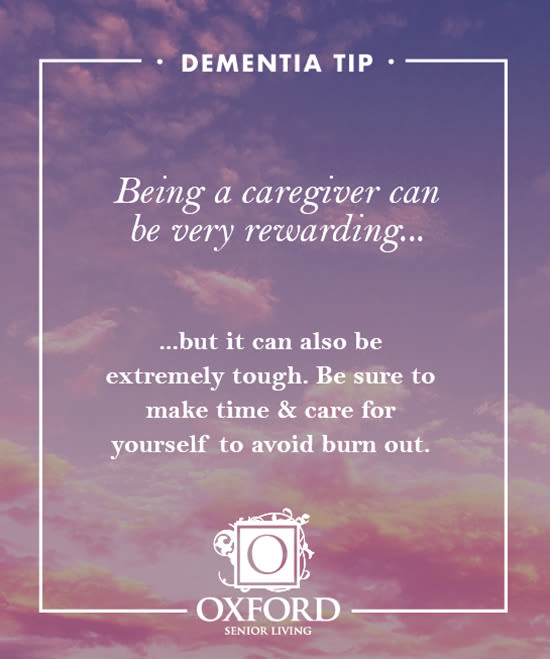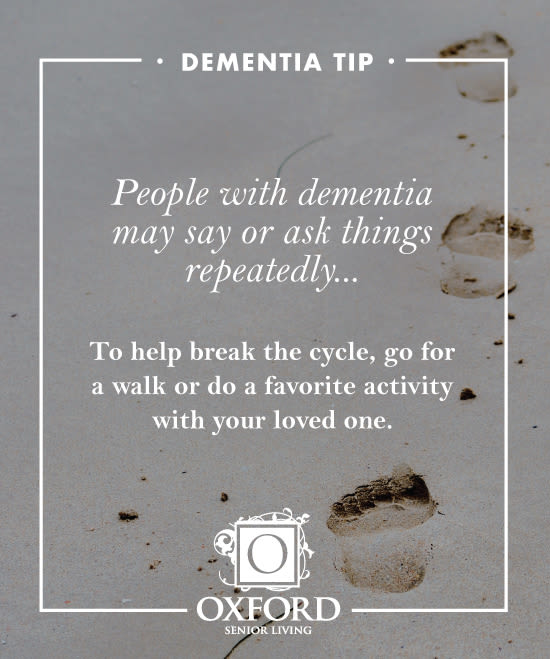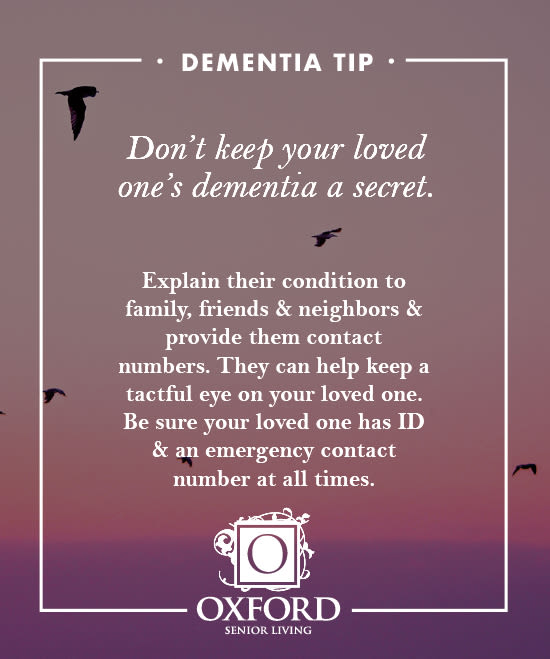Are you concerned about your parents’ health? Watching for simple clues can help determine if it is time for them to make a change – in their lifestyle or their home
1. Are your parents taking care of themselves? Pay attention to their physical appearance. Failure to keep up with basic grooming could indicate dementia, depression or physical impairments. Changes in the upkeep of their home, such as an overgrown yard or neglected housework could be a sign of depression, dementia or other concerns. It may be time for personal assistance through a home health service, maid service and landscaper. Or it may be time to consider moving into a retirement community that will take care of everything for you.
2. Are your parents safe in their home? Take a look around your parents’ home. Do your parents have difficulty navigating a narrow stairway? Are they able to read directions on medication containers? If your parents are unsteady on their feet, they might be at risk of falling — a major cause of disability among older adults. Physical changes, like adding handrails and grab bars or counting out medication in dated pill boxes, may be temporary solutions.
3. Have your parents lost weight? Weight loss could be related to many factors including: difficulty cooking, loss of taste or smell, malnutrition, dementia or depression. Subscribing to a daily meal delivery program or living in a retirement community that provides nutritious meals each day can help seniors maintain a healthy diet.
4. Are your parents in good spirits? A drastically different mood or outlook could be a sign of depression or other health concerns. Talk to your parents about their activities. Are they connecting with friends? Some seniors gather at senior centers or with church groups to maintain an active social schedule. Living in an assisted living community full of social activities and peers can improve the quality of life for seniors who might have difficulty meeting new friends or organizing daily transportation.
Sometimes it is difficult for parents to admit they need help – especially from their own children. If you are concerned about any of these issues, talk to your parents and consider contacting a doctor directly. Your insights can help a doctor find solutions that improve quality of life.










 Email
Email Follow The Adventures
Follow The Adventures Google
Google Linkedin
Linkedin